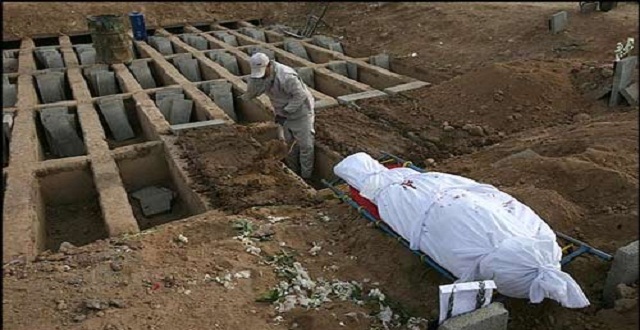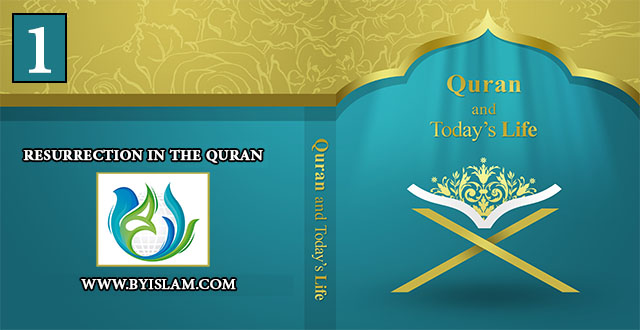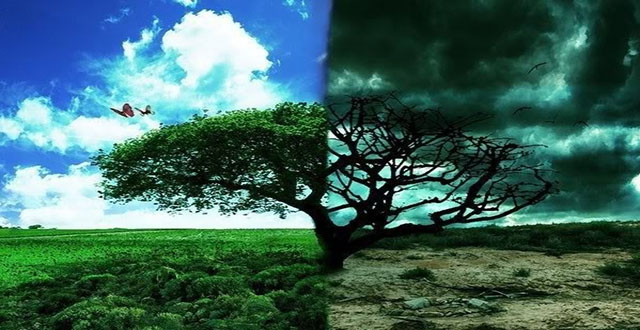
Why Do Most People Fear Death?
Most people fear death. Why?
Death has always been imagined to be a great, frightening monster and just thinking about it takes away the sweetness of life.
Not only do they fear the word ‘death’ but they also hate the word ‘cemetery’ and they try to forget about its basic nature by lighting and brightening the graves and tombs.
The effects of this fear is clearly visible in the various literatures of the world where it is expressed as ‘the monster of death’, ‘the jungle of death’, ‘the death knoll’, etc.
When they want to mention the name of a dead person, so that the person addressed not panic, they use sentences like ‘far from here’, ‘may I be struck dumb’, ‘there be seven mountains between’, and ‘may his dust give you life’ in an attempt to create a wall between the person who is listening and death.
But we have to analyze how this fear developed the human being.
Why is there a group, as opposed to the understanding of the majority of the people, who not only do not fear death but thinking about it makes them smile and welcome an honorable death?
We read in history that whereas one group were looking for the elixir of life, another group lovingly moved towards the fronts of jihad, laughed at the image of death and they were in anticipation of the day when they would join their Beloved and today, also, in the battlefronts of truth against falsehood, we see this very truth whereby they move with their life in their hands, towards martyrdom.
The Basic Reason for this Fear With research and study we reach this point that the basis for this fear is simply one of two things:
1. The Interpretation of Death as Annihilation
Human beings always flee from non-existence and from disease because it means the lack of good health; are afraid of darkness because it means a lack of light. They fear poverty because it means the destruction of wealth.
They even sometimes fear an empty home and an empty wilderness. Why? Because nobody is there!
They even fear a dead person. They are not prepared to spend the night in a room with a dead person whereas when that person was alive, they did not fear him.
Now let us see why human beings fear non-existence and non-being. The reason is clear. Existence is woven into existence. Being is familiar with being. Being is never familiar with non-being. Thus, our alienation with non-being is completely natural.
If we believe and know that death is the end of everything and assume that with death, everything ends, have a right to fear it and even be terribly frightened by the mention of the word. Why? Because death will take everything from us.
But if we believe death to be the beginning of a new and eternal life, we will not have that fear; rather, we congratulate those who, with dignity and nobility, move wards it.
2. Black Files
We all know of a group who do not interpret as being annihilation and non-being and they would deny life after death but in spite of this, they have great fear of death.
Why? Because the file of their deeds is so black they are afraid of the punishments after death; they have a right to fear death. They are like prisoners who fear the day they will be freed from prison because they know that when they are freed from prison, they will be executed.
He sticks to the prison bars, not that he is afraid freedom, he is afraid of the freedom whose result is punishment of execution. In this way, a person who does evil deeds, fears the freeing of his spirit from the ness of his body and knows this to be the beginning of his punishment and chastisement for his evil deeds and his oppression.
But those who neither see death to be annihilation nor do they have files of black deeds, why should they fear death?
They are also people who love being alive but to gain more benefits for their new life in a world after death for they welcome the death which comes upon the their goal which is well-pleasing to the Nourisher.
Two Different Points of View
We have said that people are of two kinds, one group of which forms the majority who fear and hate death.
But another group welcomes death if it is upon the way of their great goal like martyrdom upon the Way of God, or at least when they sense that their life is near the end, they never allow fear to enter their hearts. The reason is that they have two different points of view.
The first group: they either have absolutely no belief in life after death or if they believe in it, they have not really, as yet, accepted this belief, thus they believe the moment of death to be the moment to bid farewell to all things. Of course, to bid farewell to everything is most difficult; leaving the light and taking steps in the darkness of the absolute is most painful.
Also, being freed from a prison and going towards a trial for a criminal whose crimes are obvious is frightening and fearful.
But the second group believes death to be a new birth, moving beyond the limited and dark environment of this world, taking steps into an extensive world and one which is full of light.
Being freed from the narrow prison or cage of the body and flying in infinite space, leaving behind an environment in which the center of small mindedness, tensions, injustices evil opinions and wars and stepping into an environment which is cleansed of these corruptions. It is natural that they have no fear of such a death.
Just like Imam ‘Ali, peace be upon him, he said, “I swear that ‘Ali, the son of Abu Talib , looks forward to death with greater desire than a baby looks forward to its mother’s breast.”
It is not without reason that in the history of Islam, we encounter people like Imam Husayn and his faithful companions who, as the moment for their martyrdom comes, are overjoyed and they hurry towards their meeting with their Beloved.
And it is also for this reason that in the honorable life of Hadrat ‘Ali, peace be upon him, we read that when the sword struck his head, he cried out, “I swear by the God of the Ka’bah that I have been relieved.”
It is clear that the meaning of these words is not that a human being not appreciate the blessings of this world and overlook them, and not make use of them to attain great goals, but rather, what is meant is that in life, correct benefits be gained, but at the end, never allow room for fear, knowing that it is upon the way of great and sublime goals.
Think and Answer
1. Why do people fear death and what is the reason for it?
2. Why does one group smile at death and move unhesitatingly towards it with the love of martyrdom?
3. What can the moment of death be compared with? What feelings do those who are pure and good-doers have and what feelings do those have who are not?
4. Have you ever seen people who were not afraid of death? What memories of them do you have?
5. What was Hadrat ‘Ali’s logic about death?
Why Do Most People Fear Death?
1. The Interpretation of Death as Annihilation
2. Black Files
Two Different Points of View
Think and Answer
 Death is a reality in which all human beings believe. However, it is also a reality which most of us like to keep out of our minds.
Death is a reality in which all human beings believe. However, it is also a reality which most of us like to keep out of our minds.






